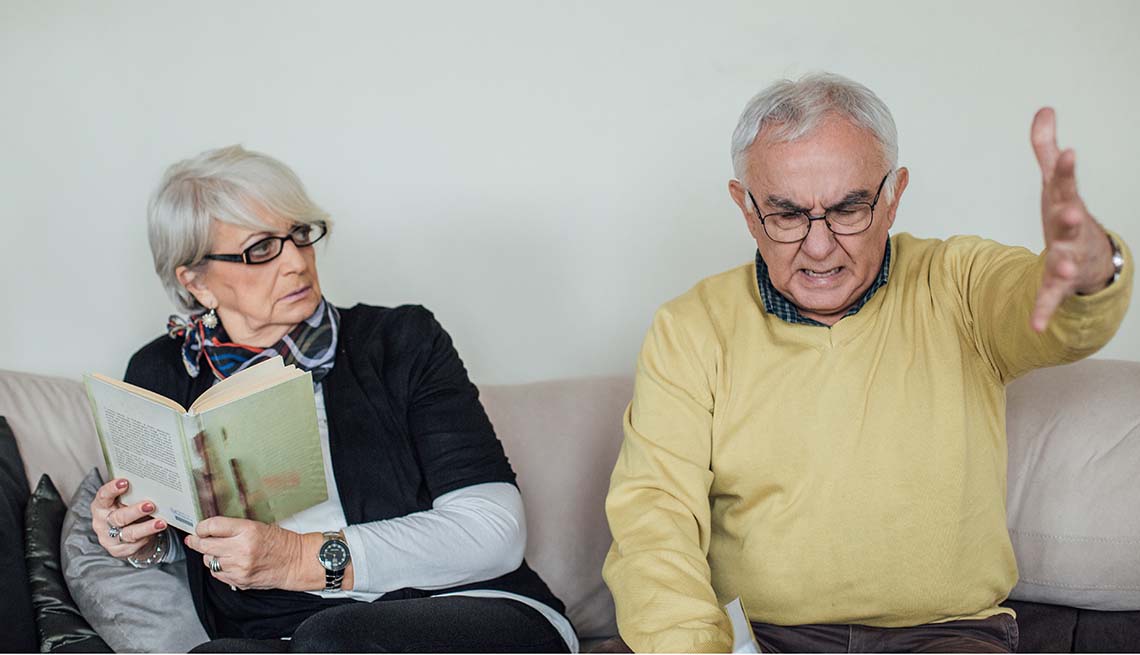
Breaking the myths about grumpy old men
- Select a language for the TTS:
- UK English Female
- UK English Male
- US English Female
- US English Male
- Australian Female
- Australian Male
- Language selected: (auto detect) - EN
Play all audios:

CHRONIC PAIN: Pain, particularly chronic pain, can make a person irritable. Dealing with pain saps your energy, leaving little room for niceties and patience. It can also interfere with
sleep. “Pain makes people irritable and it fatigues people quickly,” White says. LONELINESS: Social isolation and loneliness is a national epidemic, affecting a third of older adults. If you
have no one to talk to, and no one to visit, depression can creep in. Spend little time with other people, and you lose the social skills that keep you engaged with the world. Loneliness
can be a vicious cycle. Feel down and you don’t want to see anyone. But if you don’t see anyone, you only feel worse and become more irritable. So what to do if you’re the one who feels like
a grumpy old man (or woman)? While you can’t change the reality of age-related hardships such as the deaths of friends and loved ones, there are concrete ways to step back, take a deep
breath and regain control over your outlook and mood. LEARN TO ADAPT: Aging often means handling an onslaught of changes, many of which you may not want to accept. But pound your stake in
the ground and refuse to budge and you may find that the world moves on without you. People who can adapt to a changing environment fare better. “Adaptability is one of the best traits you
can have as an older adult,” says White of the Duke University School of Medicine. “Life is about changing and as we get older, we have to adapt to hearing loss, we have to adapt to chronic
pain.” The quicker you adapt, the better you will fare. SHUT UP AND LISTEN: When you get together with other people, listen to what they have to say, and ask questions. Don’t talk about your
arthritis or how noisy all the restaurants are. Instead, use the opportunity to learn something new and get out of your head. Talk to people who disagree with you and ask their opinions.
“One of the most powerful things you can do to cure loneliness is to get out in the world, ask other people questions and shut up about your body,” says John Medina, a developmental
molecular biologist and the author of _Brain Rules for Aging Well_. FIND A SUPPORT NETWORK: Loneliness is a dangerous thing. Focus your energy on building or strengthening your support
network. Join a spiritual or political organization or cause. Call a friend for lunch. Join a support group for people who share a common issue. Take an exercise class. Take a class at a
local college or learning center where you can learn a new skill and meet new people. GO DANCING! Exercise and movement are great for your mental and physical health. But dancing has the
added benefit of forcing you to interact directly and physically with another person. “It is a ritualized forced social interaction,” Medina says. “One of the most frightening things about
aging is people stop touching you.” Get on the dance floor, and you have a way to break through that and connect with another person. TALK TO A PROFESSIONAL: If you still cannot shake your
sadness or grumpiness, contact your health care provider. Your moodiness may be a symptom of an underlying health problem. “Someone could present with irritability and it could be a medical
emergency, like they have a bad infection or pneumonia,” says Nathanson of Columbia University. If you are suffering from depression, seek help from a therapist, as depression is a treatable
disease and you should not have to suffer alone.
